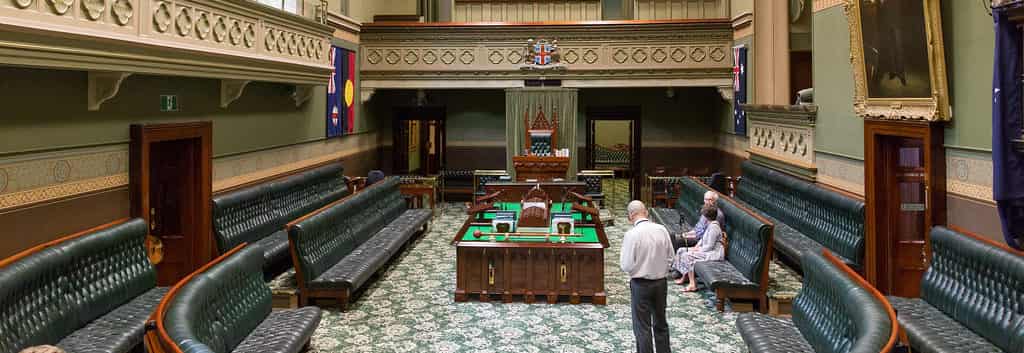On 7 August 2020, the New South Wales Parliament passed the Defamation Amendment Bill 2020 (the Bill), which amends the Defamation Act 2005 (NSW) (the Act). The commencement date for the amended Act hasn’t been set yet, but this signals the beginning of sweeping reformations to Australia’s defamation laws, with other states expected to make similar changes.
The changes to NSW defamation laws aim to reflect the current digital era, reduce the number of trivial claims, safeguard public interest journalism and limit excessive payouts. Below, we set out the key changes and what this means for defamation claims in New South Wales.
What are the changes?
Serious Harm Threshold
The Bill introduced a new element of “serious harm” to defamation law. That is, the plaintiff must prove that the material published by the defendant caused, or is likely to cause, “serious harm” to their reputation. A judicial officer must determine this as soon as practicable before a trial commences. If the judicial officer determines that the defendant did not cause serious harm, then the plaintiff’s defamation suit cannot proceed. Reflecting this change is the removal of the defence of “triviality”. This shifts the onus onto the plaintiff to prove that the defendant caused serious harm, as opposed to the defendant having to prove that the plaintiff’s claim is trivial.
This change filters out the large number of claims that aren’t sufficiently serious to warrant a trial at Court. An increasing number of people had been going to Court over rather minor claims, such as neighbourhood spats and comments on social media. With this change, only claims alleging seriously damaging conduct will come before the Court. This will save legal costs for parties and shorten the backlog of matters in Court.
Public Interest defence
The Bill also introduced a new “public interest” defence. That is, if the publication “concerns an issue of public interest”, the defendant won’t be guilty of defamation.
This change aims to allow journalists to report on matters of public interest without fear of being sued for defamation. Matters of public interest can include activities of government officials or corporate figures.
Single Publication Rule
Also introduced is the “single publication rule”. This relates to the limitation period within which a person can sue for defamation about a publication, which is one year. Under this rule, the limitation period commences from the date that the material was first published. After this period expires, a person can no longer sue about that publication.
This rule replaces the “multiple publication rule”. Under this rule, if a defendant republishes the same publication, the limitation period would start again from the date of the subsequent publication. Many stakeholders raised concerns about this rule, particularly because publishers store a lot of material online. Each time a person downloaded material, it was deemed to be “published”. This meant that for digital publications, the limitation period was potentially limitless. A person could dig up online content uploaded years ago and sue for defamation. The new rule seeks to prevent this from happening, by counting the limitation period from the date that the material was first published, or in the case of online content, uploaded online.
Cap on damages
The Bill also clarified that awards for non-economic loss (such as psychological harm) is capped at the “maximum amount”. This amount is currently $421,000 per the Act. Furthermore, the Court should award the maximum amount “only in a most serious case”.
These changes arise due to confusion about whether a limit for non-economic loss awards existed, resulting in excessive awards. Previously, the Court had held that where aggravated damages are warranted (due to particularly humiliating or outrageous conduct by the defendant) this “maximum amount” limit did not apply. This lead to massive defamation payouts to plaintiffs. An example is the $2.9 million payout to actor Geoffrey Rush after he won his suit against the Daily Telegraph. This change will ensure that the Court does not award such enormous amounts.
Concerns Notice
Additionally, the Bill makes it mandatory for an aggrieved person to issue a “concerns notice” to the publisher of the alleged defamatory material. The notice must inform the publisher of what the alleged defamatory material is. It must also state how the publication caused serious harm to their reputation. Parties cannot commence Court proceedings unless 28 days has passed since the plaintiff issued the concerns notice and the publisher failed to accept a reasonable offer to make amends.
The purpose of this section is to give the parties an opportunity to resolve their differences without going to Court. It also allows the plaintiff to consider whether the harm to their reputation is serious enough to warrant Court proceedings.
Contextual truth defence
The Bill also clarifies the contextual truth defence. This defence applies where a publication has both truthful and untruthful statements, but on the whole, is substantially true. In this case, the defendant may argue that because the publication is mostly true, the alleged defamatory statements do not further harm the plaintiff’s reputation.
Scientific or academic peer review defence
Furthermore, the Bill also provides a defence for scientific or academic peer review publications. If a defendant proves that they published the material in a scientific or academic peer review publication, they will not be liable for defamation.
Conclusion
Overall, the Bill aims to balance the interests of the defendant more equally with the interests of the plaintiff. The changes to NSW defamation laws also seek to reduce the number of unnecessary lawsuits. Finally, particular groups, such as journalists and academics, are given more protection as their work is considered beneficial for society. If you are in New South Wales and are considering suing for defamation, make sure you understand the changes to NSW defamation laws so that you know whether it’s worth going to Court. For those in other states, be prepared as change is coming your way.






